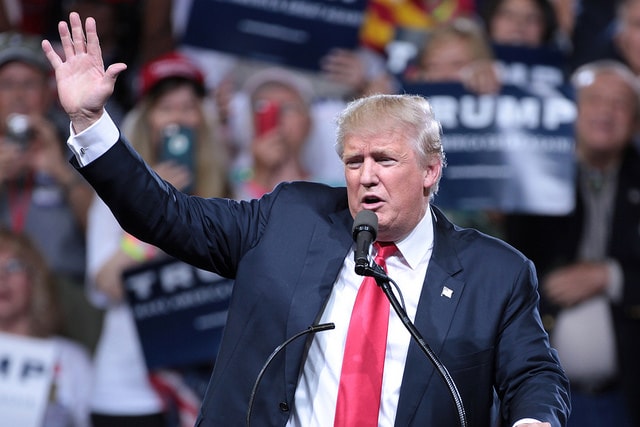In the United States, we have a rather unique set of political philosophies. Unlike some nations in the East and Southern hemisphere, our language is borrowed, our boundaries have – until recently – been fluid, and we are also in relative terms on this continent recently arrived.
Consequently, the development of political thought in the United States has been an amalgam of traditional European philosophy, African American culture, Native American influence, immigration, isolation, and an abundance of space and natural resources. Thus, what it means to be Conservative or Liberal in the American context is very different from what it means to be conservative or liberal in Europe.
This is not to mention the effects on our culture of places in which the liberal/conservative continuum doesn’t exist at all, like for instance, everywhere else besides Europe.
American conservatism is a combination of beliefs that conflate traditional European conservatism with libertarianism. American conservatism emphasizes limited and decentralized government, free trade (including foreign worker access to U.S. labor markets), and in modern times, essential equality with status based on performance and not ethnicity.
American Conservatives may even recognize the existence of social and structural racism, but they are not willing to do much about it because most conservatives reject government interference in their private lives and the free market.
The problem is the free market, while a robust generator of wealth, does a terrible job of delivering justice; people deliver justice, markets deliver profits.
American Conservatives accept that there is a need for a competent, professional, public administration to provide national defense, police protection, a judiciary, and even some forms of public health and education. Most importantly Conservatives believe in the rule of law including the concept of a transfer of power based on free and fair elections (as they define it, but that’s another article). There is also a religious component to American Conservativism, but it is ecumenical, as accepting of conservative Catholicism as it is of Orthodox Jews.
There may be some disagreements over this definition of American Conservatism, but I am confident it is pretty accurate. That being said, is Trumpism really a conservative movement? A case on point is the Conservative Political Action Committee (CPAC) that recently held its annual meeting in Orlando, Fl.
In its enthusiastic endorsement of former President Trump, CPAC implicitly embraced the anti-conservative logic of trade protectionism, White Supremacy, government corporatism (meaning government intervention in business for the benefit of the former president and his allies), and the centralization of power in the form of autocratic rule.
In fact, any actual policy preferences in this kind of “conservatism” are subsumed by an allegiance to a particular individual, Donald Trump. Most importantly, CPAC “conservativism” will not accept the results of a free and fair election that goes against it, nor is it willing to accept the rulings of the courts that don’t go its way
Related Articles: Trump and the Republican Party | Trump Populism
What then is CPAC? This movement fits the classic definition of fascism. Fascists accept autocratic rule generally centered around the leadership of a charismatic individual. They accept corporatist and even anti-capitalist state policies, nativism based on race, and the promotion of violent insurrection if necessary.
The Trumpist fixation on “Antifa” is a good example of this principle as the opposite of anti-fascism (Antifa) is fascism; but a world without fascism leaves a lot of options, a fascist world does not.
Because the United States has a history of fighting fascism and because Nazism is still considered synonymous with fascism, modern American fascists are reluctant to identify themselves as such, but as we say in the South, if it walks like a duck and quacks like a duck, it’s a duck.

That being the case, the question then is what to do? It’s important to understand that there is very little room for compromise since Fascists accept as basic principles neither capitalism nor democracy. Therefore fascist beliefs conflict with the basic tenets of American liberalism and conservatism. Furthermore, Fascists will not deal in good faith; negotiations for them are only useful as a path to power, not to compromise.
Furthermore, because the American system allows for minority rule, there is always the danger they will gain power as Trump did in 2016 by winning in the Electoral College despite losing the popular vote. Even in 2020, despite a rather formidable loss in the popular vote, Trump came fairly close to winning re-election.
Even so, the Trumpist movement is outnumbered, polling a consistent following of no more than 40%.
It’s hard to control a democratic political system in America with those numbers. Plus, that 40% may be a little soft (“only” 55% of CPAC members preferred Trump in 2024 for President). It is conceivable that given a reasonable, conservative alternative, many Trump supporters would find American conservatism a viable option.
That means the Biden Administration can compromise and should want to act in coalition — when it can — with the anti-Trumpist wing of the Republican Party which accurately represents the political ideology of American Conservatism.
There are major differences between American Liberalism and Conservatism, but there are also some basic foundational agreements. Liberals and conservatives agree on the value of public education, the question is over how much and for whom. Liberals and conservatives agree on public health and even the environment. Liberals and Conservatives frequently agree on foreign policy and national security — but it’s a matter of emphasis and degree.
The Biden Administration seems to be acting along these lines. But what I want to make clear is there is no room for compromise with Trump-style fascism, nor can it be taken lightly, as extremists will stop at nothing. The Trumpist fixation on “Antifa” is a good example of this principle as the opposite of anti-fascism (Antifa) is fascism; but a world without fascism leaves a lot of options, a fascist world does not.
That being said, Trumpism doesn’t have the numbers and lacks discipline and organization. Consequently, chances are this movement can be unwound. But it’s going to take a conscious effort and the cooperation of what we should recognize as real conservatives.
——
Daniel Franklin is an Associate Professor Emeritus at Georgia State University. His most recent book is on the politics of presidential impeachment.
Editor’s Note: The opinions expressed here by Impakter.com columnists are their own, not those of Impakter.com. — In the Featured Photo: The Republican Party logo. Featured Photo Credit: Shutterstock.









